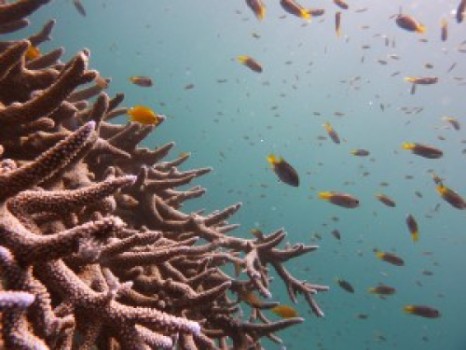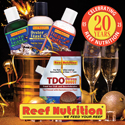An international team led by the James Cook University CoralCoE has provided some promising news for corals dealing with rising levels of acidification. “Our aim was to explore the effect of a more acidic ocean on every gene in the coral genome,” adds lead author Dr Aurelie Moya, a molecular ecologist with the ARC Centre of Excellence for Coral Reef Studies at James Cook. Staghorn corals are known to be the number one reef building species of reefs worldwide and researchers gathered fragments of wild colonies collected from the Great Barrier Reef of Australia and subjected them to elevated levels of Co2 in the lab. “We found that, whereas 3 days of exposure to high CO2 disrupts formation of the coral skeleton, within nine days the baby corals had re-adjusted their gene expression to pre-exposure levels. Longer exposure seems to be less detrimental to coral health than we had assumed based on shorter-term studies,” states Dr Aurelie Moya, a molecular ecologist with the ARC Centre of Excellence for Coral Reef Studies at James Cook. “We saw that within a few days juvenile coral adapted to CO2 levels double those experienced today with no obvious disruption to its life processes,” adds study co-author, Professor David Miller, who heads up the molecular biology group at CoralCoE. Learn more here!
“We found that, whereas 3 days of exposure to high CO2 disrupts formation of the coral skeleton, within nine days the baby corals had re-adjusted their gene expression to pre-exposure levels. Longer exposure seems to be less detrimental to coral health than we had assumed based on shorter-term studies,” states Dr Aurelie Moya, a molecular ecologist with the ARC Centre of Excellence for Coral Reef Studies at James Cook. “We saw that within a few days juvenile coral adapted to CO2 levels double those experienced today with no obvious disruption to its life processes,” adds study co-author, Professor David Miller, who heads up the molecular biology group at CoralCoE. Learn more here!










0 Comments